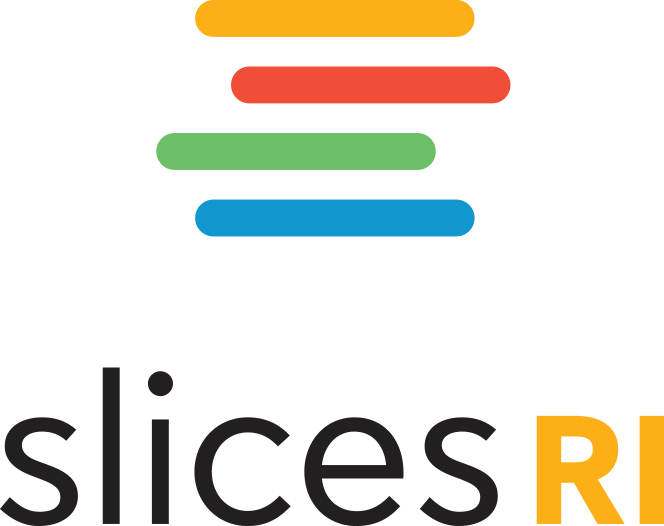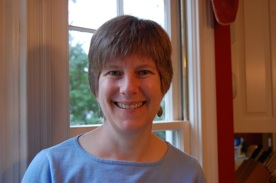
Ellen Zegura
speaker
Ellen Zegura is the Fleming Professor in the School of Computer Science at Georgia Tech. She works in two primary areas, computer networking and computing for social good. In computer networking, she is known for her work on the GT-ITM suite of Internet topology tools, which remain in use 20 years after release. In mobile wireless networking, she and colleagues invented the concept of message ferries to facilitate communications in environments where network connectivity is unreliable and/or sparse. Her work in computing and social good includes work in Liberia, with Native Americans in Southern California, and with residents of the Westside of Atlanta. She is a Fellow of the IEEE, a Fellow of the ACM, and an elected member of the Computing Research Association Board (CRA). Since Fall 2014 she has been on the Executive Board of the CRA.
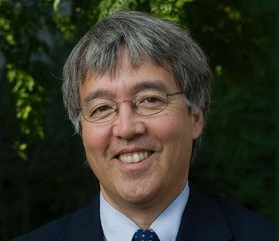
Jim Kurose
organizer
Jim Kurose is a Distinguished University Professor in the College of Information and Computer Sciences at the University of Massachusetts Amherst, where he has been on the faculty since receiving his PhD in computer science from Columbia University. He received a BA in physics from Wesleyan University. He has held a number of visiting scientist positions in the US and abroad, including the Sorbonne University, the University of Paris, INRIA and IBM Research. His research interests include computer network architecture and protocols, network measurement, sensor networks, and multimedia communication. He is proud to have mentored and taught an amazing group of students, and to have received a number of awards for his research, teaching and service, including the IEEE Infocom Award, the ACM SIGCOMM Lifetime Achievement Award, the ACM Sigcomm Test of Time Award, and the IEEE Computer Society Taylor Booth Education Medal. With Keith Ross, he is the co-author of the best-selling textbook, Computer Networking: a Top Down Approach (Pearson), now in its 8th edition. He is a member of the National Academy of Engineering and a Fellow of the ACM and the IEEE.
From January 2015 to September 2019, Jim was on leave, serving as Assistant Director at the US National Science Foundation, where he led the Directorate of Computer and Information Science and Engineering (CISE). With an annual budget of nearly $1B, CISE’s mission is to uphold the nation’s leadership in scientific discovery and engineering innovation through its support of fundamental research in computer and information science and engineering and transformative advances in cyberinfrastructure. Here is a blogpost on his NSF work. While at NSF, he also served as co-chair of the Networking and Information Technology Research and Development Subcommittee (NITRD) of the National Science and Technology Council Committee on Technology, facilitating the coordination of networking and information technology research and development efforts across Federal agencies. In 2018, Jim also served as the Assistant Director for Artificial Intelligence in the White House Office of Science and Technology Policy (OSTP).
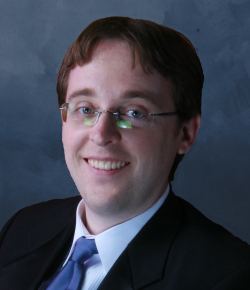
Matt Caesar
co-organizer
I am an Associate Professor in the Department of Computer Science at UIUC. I am also an Affiliate Associate Professor in the Department of Electrical and Computer Engineering, an Affiliate Research Professor in the Coordinated Science Laboratory, Affiliate Associate Professor in the School of Information Sciences, and a member of the Information Trust Institute. I am also Chief Science Officer of Veriflow and I serve as the Director of Education for ACM SIGCOMM. I received my Ph.D. in Computer Science from UC Berkeley.
My research focuses on the design, analysis, and implementation of networked and distributed systems, with an emphasis on network virtualization, routing, network algorithms, systems security, and cloud services. I like taking a multi-pronged approach to system design, building systems that work well in practice but are grounded in strong theoretical principles. My recent work involves network security, network verification, and Internet of Things.
panelists
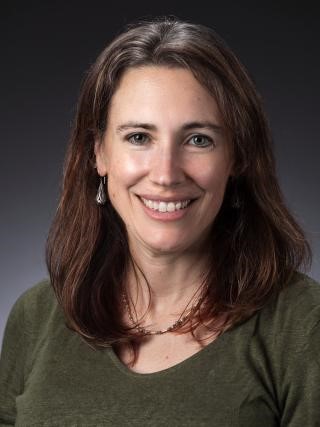
Elizabeth M. Belding
Professor
Department of Computer Science Associate Dean and Faculty Equity Advisor, College of Engineering University of California
Elizabeth M. Belding is a Professor in the Department of Computer Science at the University of California, Santa Barbara. Prof. Belding’s research focuses on mobile and wireless networking, including network performance analysis, and information and communication technologies for development (ICTD). She is a co-developer of the AODV routing protocol for mobile networks, on which 802.11s and Zigbee technologies are based in part. The original AODV paper published in WMCSA’99 received the 2018 ACM SIGMOBILE Test of Time Award. Prof. Belding applies her wireless network expertise to a wide range of contexts, and is particularly interested in improving Internet and cellular accessibility in developing and resource-challenged communities worldwide. Her ICTD projects have included work in Zambia, South Africa, Mongolia, and refugee camps. Most recently, she has been working with Native American communities around the US. She is the founder and director of the Mobility Management and Networking (MOMENT) Laboratory. Prof. Belding is the author of over 150 technical papers on wireless networking and has served on over 80 conference technical program committees. She was Vice Chair of the UCSB Computer Science department 2009-15 and 2017-19. She is currently an Associate Dean and Faculty Equity Advisor in the UCSB College of Engineering. Prof. Belding is the recipient of an NSF CAREER Award, and a 2002 MIT Technology Review 100 award, awarded to the world’s top young investigators. She is an ACM Fellow, AAAS Fellow and IEEE Fellow. She is particularly proud of receiving the UCSB Outstanding Graduate Mentor Award in 2012 and the NCWIT Harrold and Notkin Research and Graduate Mentoring Award in 2015 for her mentorship of graduate students.

Kurtis Heimerl
Assistant Professor
Computer Science & Engineering, University of Washington
Kurtis Heimerl returns to Computer Science & Engineering this winter as an assistant professor. He completed a postdoctoral position at UC Berkeley with fellow UW CSE alumnus Tapan Parikh as his graduate co-advisor. Kurtis’ research interests span information and communication technologies and development, human-computer interaction, and networks and systems. His work focuses primarily on developing wireless computing infrastructure equipped with radio systems that expand telecommunication access worldwide.
Kurtis was recognized with an MIT Technology Review Innovators Under 35 Award for his work on Community Cellular, a low-cost, low-power system for providing small-scale and locally-owned cellular networks to rural communities lacking existing cellular coverage. He is the co-founder of Endgaga, a startup company that commercializes this research by bringing independent cellular technology to remote locations such as Indonesia, Pakistan, Afghanistan and the Philippines.
He has been awarded an NSF Graduate Research Fellowship and has been featured in Newsweek, The Economist and Reuters for his work in telecommunications like data privacy and infrastructure for undeserved communities.
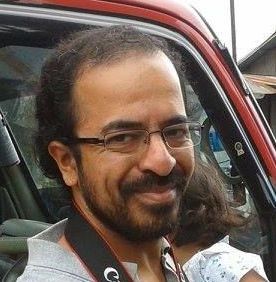
Aaditeshwar Seth
Associate Professor
Department of Computer Science and Engineering at IIT Delhi.
Aaditeshwar Seth is a faculty in the Department of Computer Science at IIT Delhi, where he runs the ACT4D (Appropriate Computing Technologies for Development) research group. He is passionate about building technologies that can empower people with information. He also runs a social enterprise, Gram Vaani, which builds voice-based systems for community media in rural areas. His policy interests lie in the ethical use of ICTs (Information and Communication Technologies) and media, studying the political economy of ICT policies in India, and to develop useful insights for socio-economic development planning through the use of big-data sources. Work done by Aaditeshwar’s team and students are now in use by over 150 developmental organizations, and several elements of their work have influenced the use of ICTs for development within many international aid and development organizations.
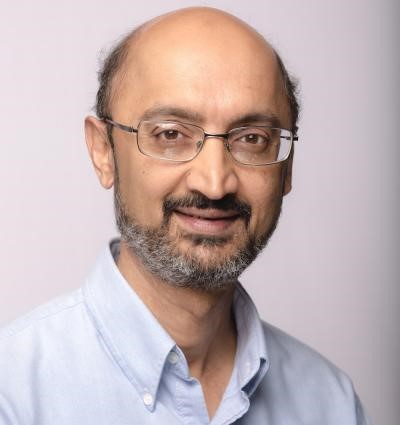
Srinivasan Keshav
Professor
Department of Computer Science, University of Cambridge
Srinivasan Keshav is the Robert Sansom Professor of Computer Science at the University of Cambridge. He received a B.Tech in Computer Science and Engineering from IIT Delhi in 1986 and a Ph.D. in Computer Science from the University of California, Berkeley in 1991. He was subsequently an MTS at AT&T Bell Labs and an Associate Professor at Cornell. In 1999 he left academia to co-found Ensim Corporation and GreenBorder Technologies Inc. He was at the University of Waterloo from 2003 to 2019 holding first a Canada Research Chair and then the Cisco Chair in Smart Grid. His honours include being named Fellow of the Royal Society of Canada, ACM, and IEEE, and a Distinguished Alumnus of IIT Delhi. He is the author of two graduate textbooks on computer networking.

